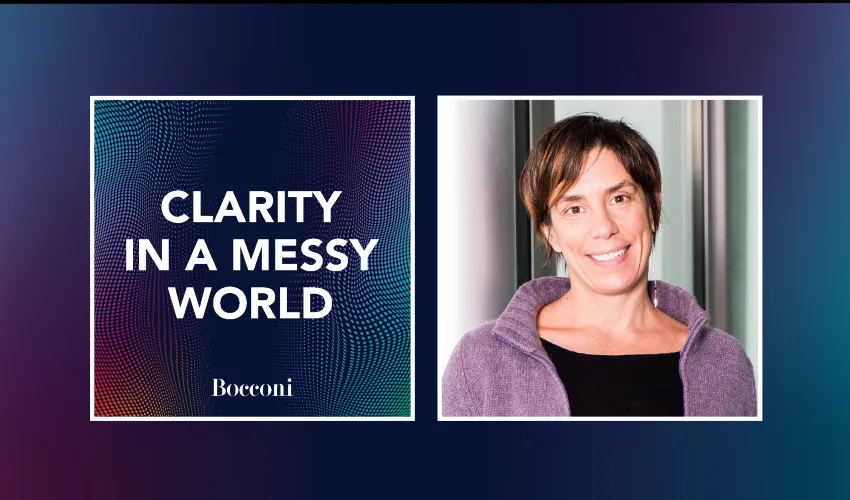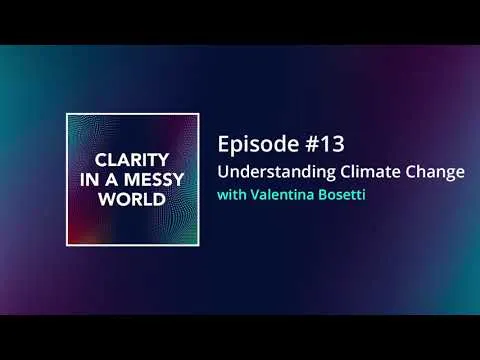
Why to Care About Climate Change Even if It Won't Cause Our Extinction
If human beings are still kicking around in spite of plagues, floods, ice ages, and periodical starvation, it means they are resilient. This time around, with climate change, though, it's different, Valentina Bosetti explains in the latest episode of the Clarity in a Messy World podcast series.
"This time," she says, "it's much faster, it's not natural but caused by humans, and finally, extinction is not the problem: the point is that, at our stage of development, billions of people should thrive – not survive and suffer, and climate change threatens the wellbeing of billions."
Bosetti, Full Professor of Climate Change Economics at Bocconi, clarifies the role of Economics in the multidisciplinary and international effort to curb climate change. "I teach cost-benefit analysis in my classes," she says, "and, then, I warn my students not to use it in climate change. The costs of climate change could be so huge – and anyway they are so difficult to measure - that the exercise is pointless. Climate change economists decided, instead, to accept the target that other scientists set, the famed two degrees above the pre-industrial average, and to develop strategies to reach such a target at the minimal cost."
Professor Bosetti concludes assessing the impact of the Fridays for Future movement. "If you look at the media attention effect, as we have done in our research, it's short-lasting, just a few days, but there are longer lasting waves, embodied in the growing number of students who want to study climate change and climate change economics."
Clarity in a Messy World, hosted by David W. Callahan, is the Bocconi podcast that looks at the causes behind the most confounding issues of our time. You can follow the podcast on Apple Podcasts, Google Podcasts, Spotify, Spreaker, and YouTube.
Understanding Climate Change | Podcast #13
